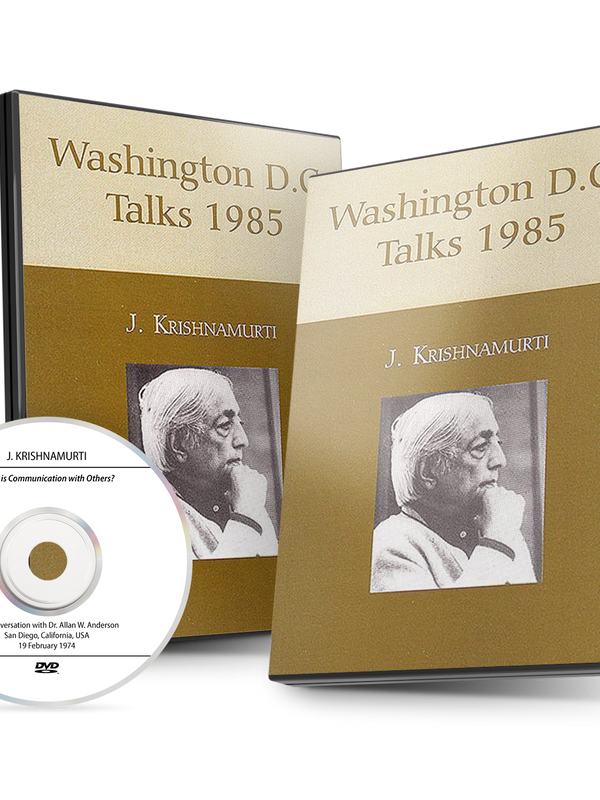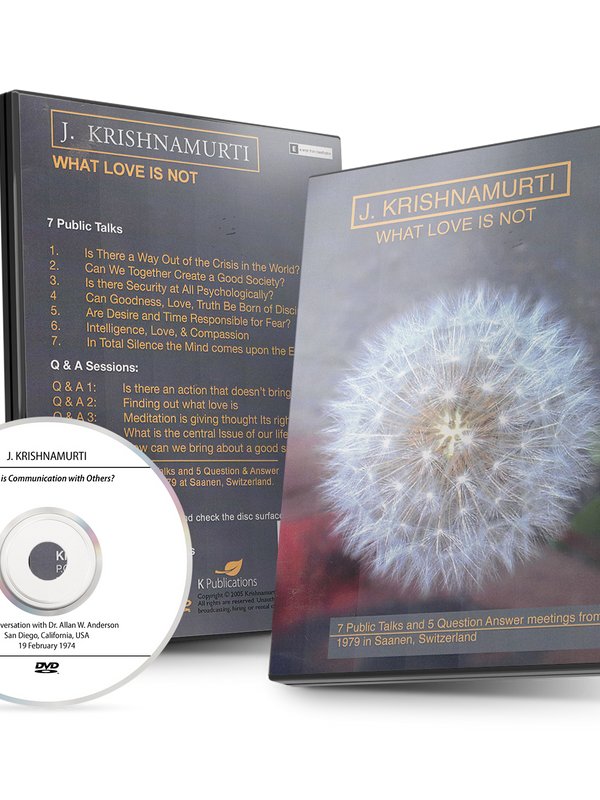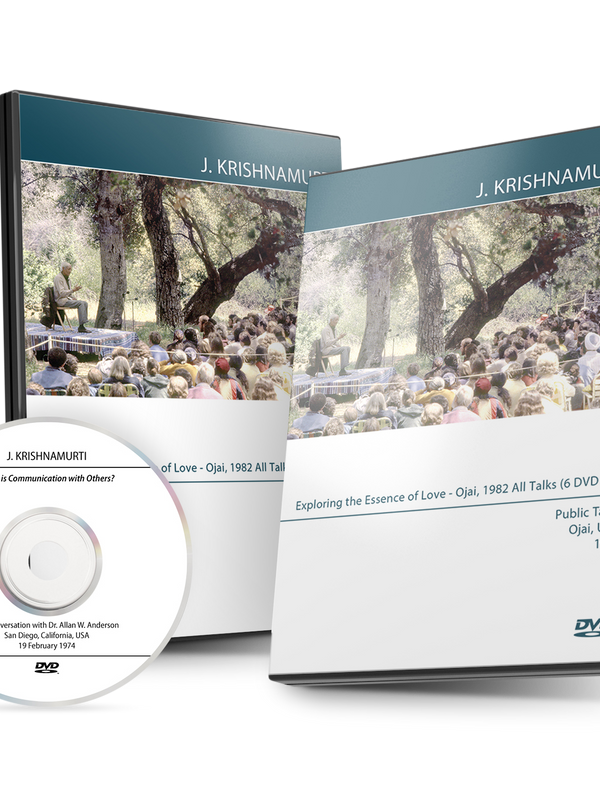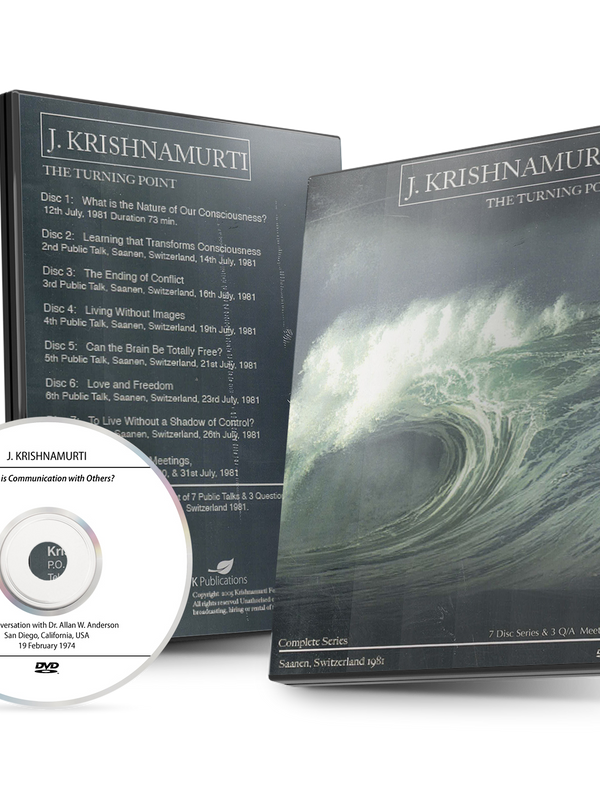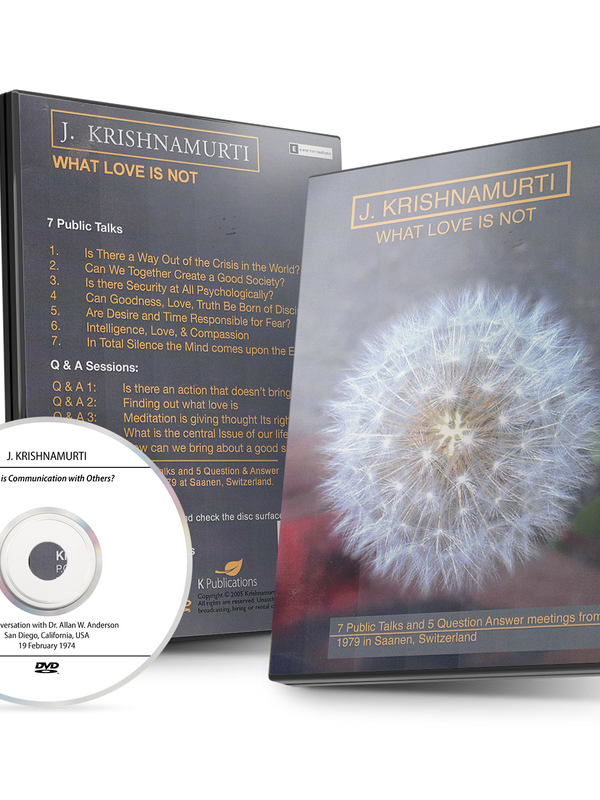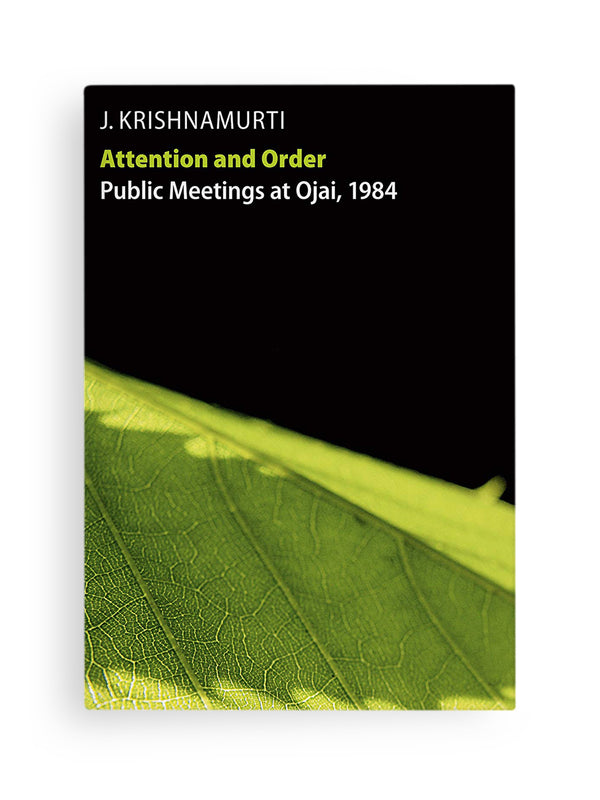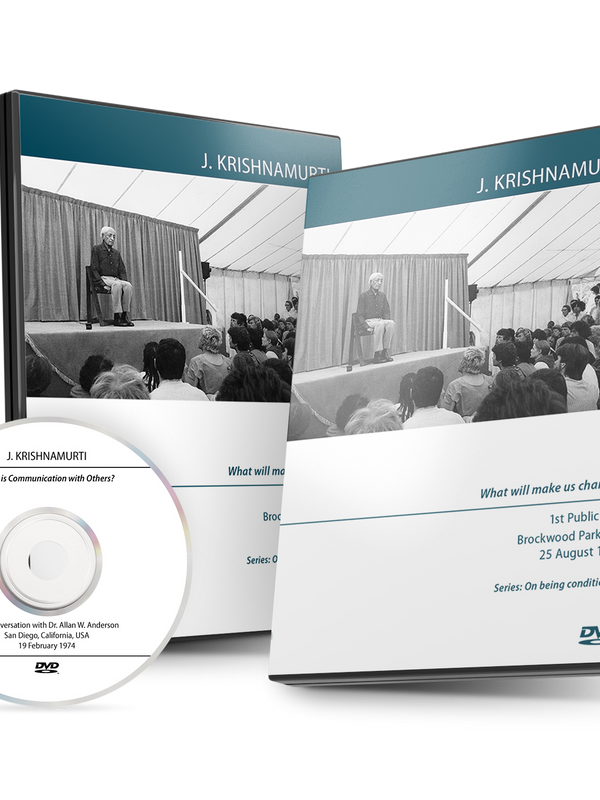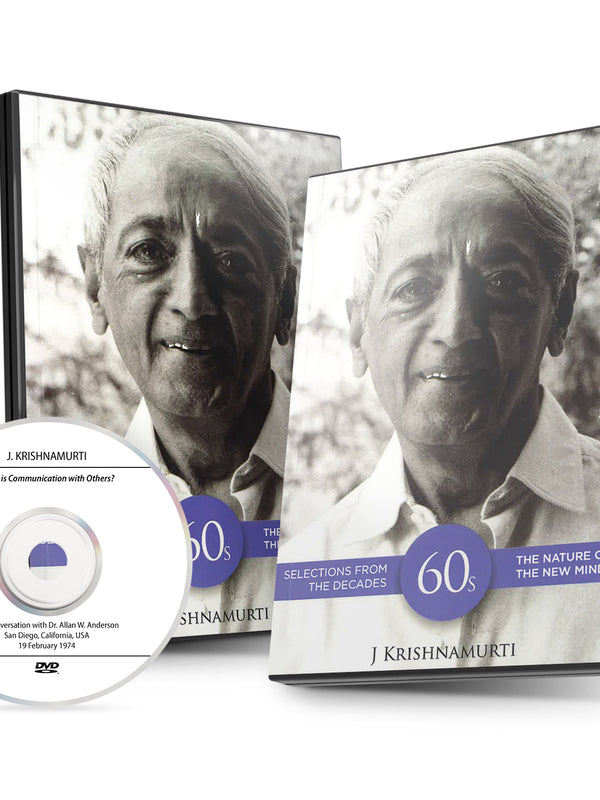
Public talks 1 through 5 - Ojai, California, USA - February 1980
1) Can we think together about the crisis we are facing?
2) Observation is the total denial of analysis
3) Is time necessary to end something psychologically?
4) Desire, attachment and fear
5) Psychologically we are one unitary movement
6) Action, observation and dying while living
Excerpt:
How does desire come into being and why does it play such an extraordinary part in one’s life?
Greed is a form of desire. Greed is encouraged by industrialists and advertisements.
Thought creates the image of a person and is attached to that image. Can attachment, with all its consequences, end?
What is fear? Isn’t one afraid of letting go of attachment?
Why haven’t we, with all our knowledge and experience, resolved this problem of fear completely?
Is fear time? Is fear a movement of thought?
Note: a total of 5 minutes of missing video is replaced by audio only.
Jiddu Krishnamurti lived from 1895 to 1986, and is regarded as one of the greatest philosophical and spiritual figures of the twentieth century. Krishnamurti claimed no allegiance to any caste, nationality or religion and was bound by no tradition. His purpose was to set humankind unconditionally free from the destructive limitations of conditioned mind. For nearly sixty years he traveled the world and spoke spontaneously to large audiences until the end of his life in 1986 at the age of ninety. He had no permanent home, but when not traveling, he often stayed in Ojai, California, Brockwood Park, England, and in Chennai, India. In his talks, he pointed out to people the need to transform themselves through self knowledge, by being aware of the subtleties of their thoughts and feelings in daily life, and how this movement can be observed through the mirror of relationship.

